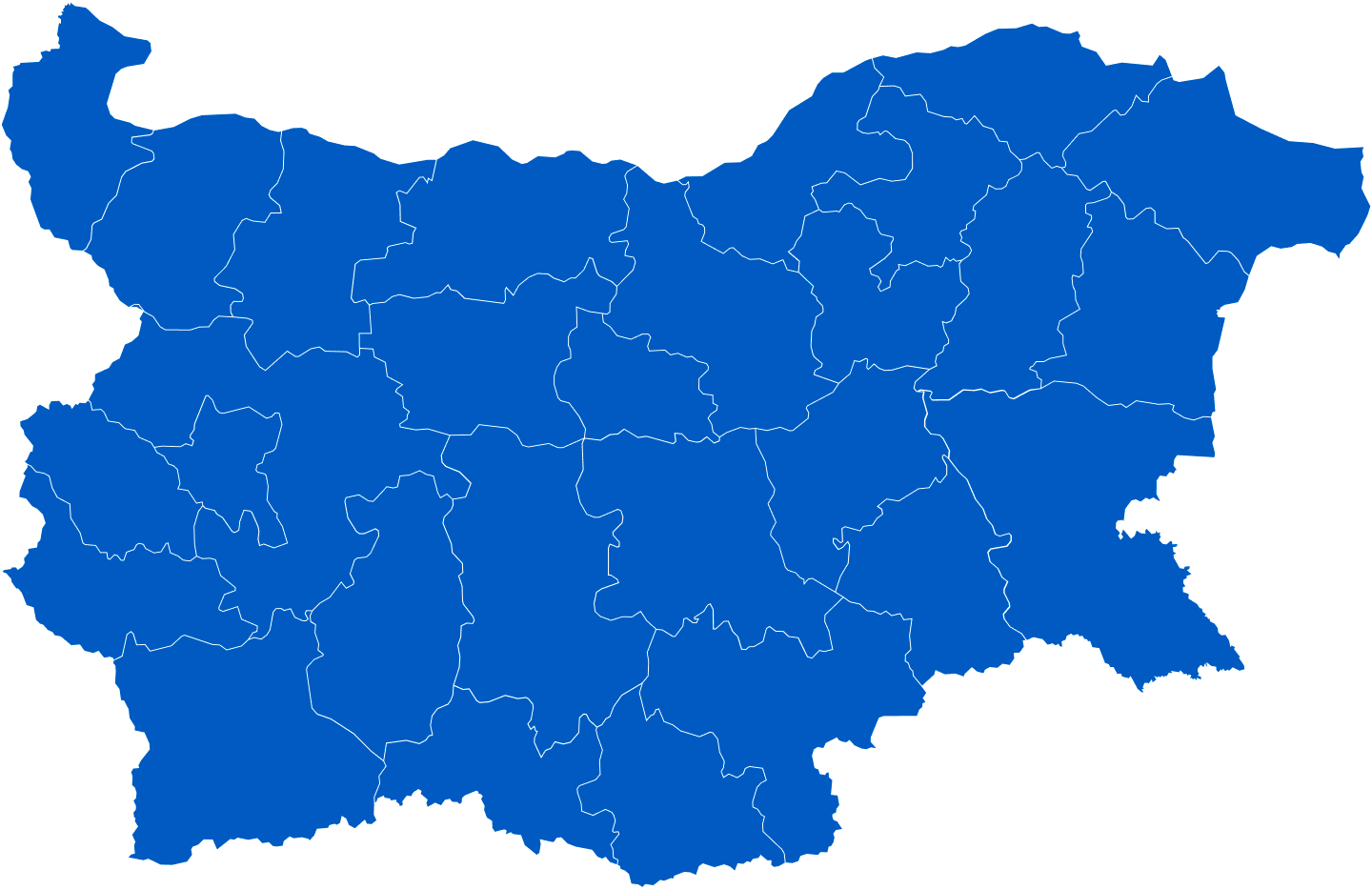Burgas Region
The largest of the 28 districts of the country is located in southeastern Bulgaria. It borders the Black Sea to the east and Turkey to the south. It covers an area of 7748.1 km2 and has a population of over 400 thousand people. The administrative center of the district is the city of Burgas. There are 13 municipalities – Aytos, Burgas, Kameno, Karnobat, Malko Tarnovo, Nessebar, Pomorie, Primorsko, Ruen, Sozopol, Sredets, Sungurlare and Tsarevo, most of which are seaside resorts.
The people of Burgas region say that it is a “crossroads of the most ancient civilizations” with its invaluable archaeological finds and rich cultural and historical past, and unique with its tourist present. Different types of tourism are developing in Burgas district – sea and balneological, rural, eco and hunting, cultural and religious. Here is the capital of balneology in Bulgaria – the town of Pomorie, here are the relics of St. John the Forerunner, some of the best wines in the country are produced here.
The district is among the fastest growing in the country – both economically and socio-culturally.
Education & Child Care
There are 109 kindergartens in the district, only in Burgas there are 34 nursery groups in kindergartens.
The total number of schools in the Burgas region is 137. There are two universities – the State University “Prof. Dr. Asen Zlatarov ”and the private Burgas Free University.
Health
26 large medical establishments on the territory of the district are in the register of the Ministry of Health. All types of general and specialized medical and outpatient health care are provided.
GDP
Burgas District gives 5.22% of the country’s GDP in the following transport and market infrastructure:
- International Airport
- Port complex – Burgas, Oil and Fish ports; the ports of Sozopol, Nessebar and Tsarevo;
- Burgas Airport, incl. cargo terminal;
- Extended railways stations in Burgas and Karnobat;
- Large enterprises for motor transport in Burgas and Karnobat;
- Extensive storage areas – open and in premises – located mainly in the port area and near the Burgas-Karnobat highway;
- Burgas Free Zone
Industry & Jobs
Industry with its diversified specifics is a leading sector in the economic structure of Burgas. Most industries are represented, with the exception of the automotive industry, low and high voltage installations and partly electronics.
Some of the productions are unique or defining for the country, such as: dark and light oil products, chemical fibers, plastics and other chemical products; shipbuilding, ventilation and purification equipment, freight wagon building, fish processing industry.
The following industries are crucial structurally:
- Petrochemical / oil refining industry / – gives 70% of the volume of industrial production;
- Food industry and wine production – 12.2%;
- Production of electricity and heat – 3.6%;
- Textile industry – 2.4%.
Crafts and production of traditional products are developed – plastic packaging, clothing, confectionery, bed linen, furniture.
Among the most sought-after professions in Burgas and the region are broker, business consultant, seasonal workers in accommodation and restaurants, international drivers, warehouse workers.
Cultural & Historical Heritage
The Burgas region is also characterized by rich cultural and historical
heritage. During the epoch of antiquity 4 main ones developed here
economic, political and cultural centers located along the coast – Mesembria, Anhialo, Debelt and Apollonia. Millennial human culture has left invaluable architectural monuments: excavations of ancient cities, Thracian sanctuaries and tombs, dolmens, unique cultural monuments – churches and monasteries.
Here are 4 of the nature reserves of international importance – Uzunbodjak, Silkosia, Ropotamo and Atanasovsko Lake.
Among the natural attractions is the Gulf of Aleppo. For the protected areas, the mouth of the Veleka River, Lake Vaya and Poda, which are birdwatching points, have been identified.
Accommodation
The current amount of rents for housing is BGN 400 per month. The price is indicative, the complex of price-forming factors should be taken into account – location in relation to the sea, location in relation to a residential complex / center, number of rooms, year of construction, whether the apartment block is rehabilitated under the energy efficiency program; and other.
Important Contacts
24/7 phone line to help arrivals from Ukraine:
+359 885 20 58 38
+359 885 80 90 40
Employment Agency, Burgas:
Official site Employment Agency (government.bg)
Regional education management: NEWS (ruoburgas.bg)
Find more information
Find
accomodation
Medical
help
Get
humanitarian aid
Volunteer
initiatives
See all regions

